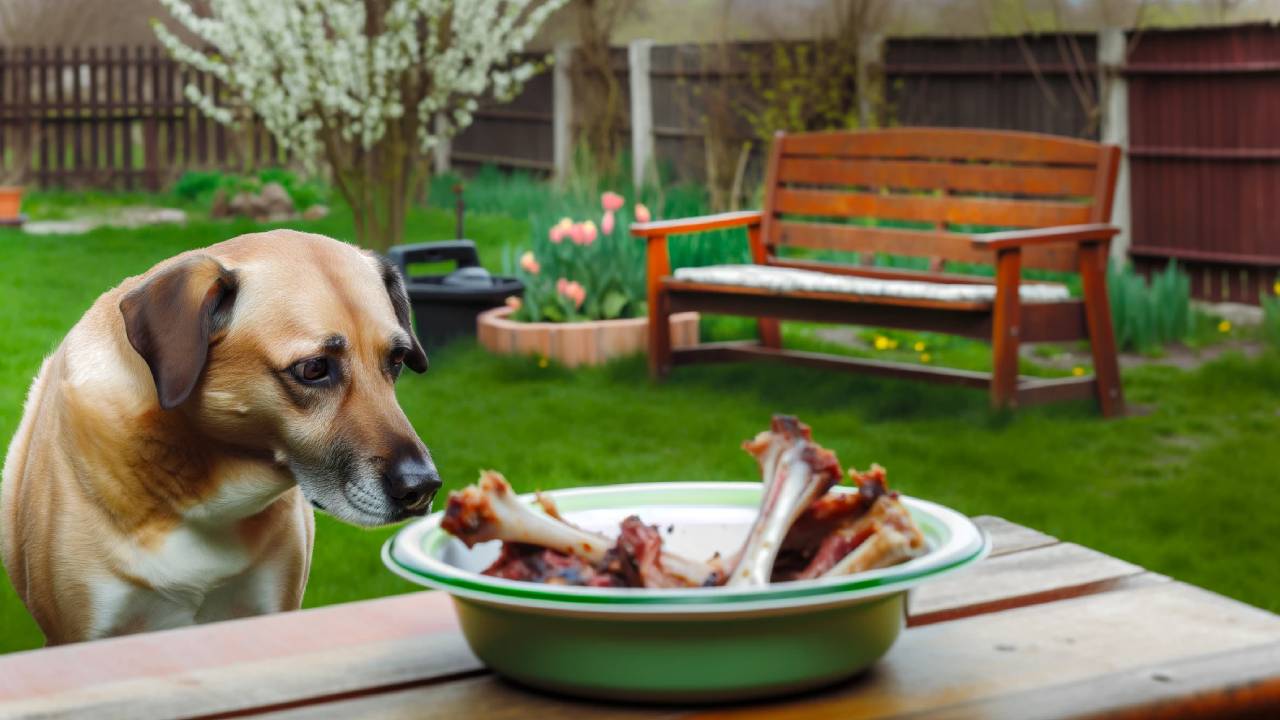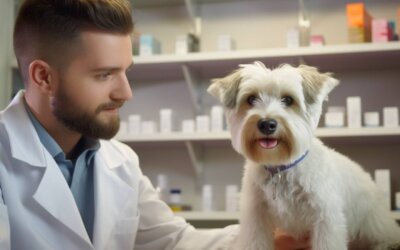Dogs should not be given pork bones. The short answer is no, and there are several reasons behind this. Whether cooked or raw, pork bones pose significant risks to your canine companion’s health.
They can splinter easily, leading to serious injuries in your dog’s mouth, throat, or digestive tract. Moreover, these bones can cause choking hazards or even blockages in the intestinal tract, which can be life-threatening.
Are Any Bones Safe for Dogs to Eat?
Some bones are safe for dogs, but choosing the right ones is crucial. Veterinarians recommend giving your dog raw, large, and meaty bones like beef or lamb. These bones are less likely to splinter and provide valuable nutrients and mental stimulation. Always supervise your dog while they enjoy their bone treat.
What Should I Do if My Dog Eats a Pork Bone?
If your dog has ingested a pork bone, it’s essential to take immediate action to ensure their safety:
- Monitor Your Dog: Start by closely observing your dog for signs of distress or discomfort. Look for symptoms such as choking, coughing, gagging, vomiting, diarrhea, or abdominal pain. Monitoring your dog’s behavior is crucial in assessing the situation.
- Contact Your Veterinarian: If you suspect your dog has ingested a pork bone, it’s advisable to contact your veterinarian immediately. Please provide them with as much information as possible, including the size of the bone, when your dog ate it, and any observed symptoms. Your veterinarian can offer guidance based on your dog’s specific situation.
- Follow Your Vet’s Instructions: Your veterinarian may recommend bringing your dog in for an examination or providing guidance on monitoring your dog at home. They might perform X-rays to assess whether the bone has caused blockages or internal injuries.
Quick action and professional guidance are crucial when dealing with a dog that has ingested a foreign object like a pork bone. It’s always better to err on the side of caution and seek veterinary advice to ensure your dog’s well-being.
Dog Bones To Avoid (Small, Cooked Pork Bones & Raw Pork Bones)
Let’s expand on the paragraph about dog bones to avoid, including small, cooked pork bones and raw pork bones:
Small Bones
Small bones, such as those found in pork ribs or chops, are unsafe for dogs. These bones can easily splinter into sharp fragments, posing a choking hazard and potentially causing internal injuries when ingested. Choosing larger, meatier bones that are less likely to break into dangerous pieces is essential.
Cooked Pork Bones
Cooked pork bones should never be given to dogs, regardless of their size. When pork bones are cooked, they become brittle, making them more likely to shatter into sharp shards when chewed on by your canine companion. If swallowed, this can result in serious mouth injuries, throat obstructions, or gastrointestinal issues. Always stick to raw bones when offering your dog a bone treat.
Raw Pork Bones
Even though some raw bones can be safe for dogs, raw pork bones are generally not recommended. Pork has a higher risk of carrying harmful bacteria like Salmonella or E. coli, which can lead to foodborne illnesses in dogs. To ensure your pet’s safety, it’s best to avoid raw pig bones altogether and opt for safer alternatives like raw beef or lamb bones.
In summary, it’s crucial to be discerning when selecting bones for your dog. Avoid small, cooked pork bones, as they are prone to splintering and causing harm. Raw pork bones should also be off-limits due to the risk of bacterial contamination.
How To Give A Dog A Bone
To safely give your dog a bone, select an appropriate bone that matches its size and chewing habits. Opt for raw, meaty bones like those from beef or lamb, as they are less likely to splinter. Always supervise your dog during bone time to ensure they don’t swallow large pieces or get into accidents.
Hand the bone to your dog gently, and observe their behavior as they chew. If you notice any signs of discomfort, take the bone away immediately. Ensure the bone is large enough that your dog can’t swallow it whole but not so small that it becomes a choking hazard.
When your dog has finished enjoying the bone, store any leftovers in the refrigerator to prevent bacterial growth. Remember that bones are treats and should not replace your dog’s balanced diet. These steps can provide your furry friend a safe and enjoyable bone treat.
Explore: Can dogs eat chicken bones?
Conclusion
In conclusion, it’s crucial to prioritize your dog’s safety and well-being when feeding pig bones. Pork bones, both cooked and raw, are unsuitable for dogs due to their high risk of splintering and causing serious harm.
Instead, opt for raw, meaty bones like beef or lamb, and always supervise your dog during one time. Making informed choices can provide your furry friend with a safe and enjoyable treat.

FAQs
Can dogs eat any bones?
While some bones are safe for dogs, choosing the right ones is essential. Opt for raw, meaty bones from larger animals like beef or lamb, and avoid small, cooked, or pork bones.
What are the dangers of giving a dog pork bones?
Pork bones can splinter easily, posing a choking hazard and risking internal injuries or blockages if ingested.
How can I tell if my dog has swallowed a pork bone?
Watch for symptoms like choking, vomiting, diarrhea, or discomfort. Contact your veterinarian if you suspect your dog has ingested a pork bone.
Are there any alternatives to pig bones for my dog’s dental health?
Yes, there are plenty of alternatives, such as dental chews, toys, and regular teeth cleaning by your veterinarian.
Can dogs eat pork bones from BBQ?
It’s best to avoid it. BBQ or roasted pork bones can be just as hazardous as other pork bones, as they can splinter easily and pose risks to your dog’s health.






0 Comments